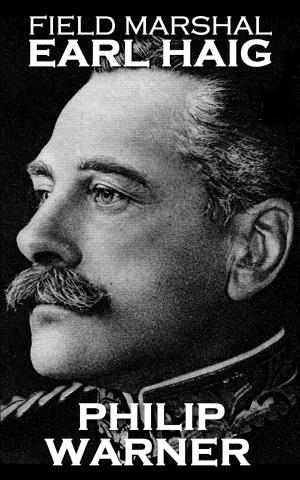| Author: | Phillip Warner | ISBN: | 9781859595206 |
| Publisher: | Class Publishing | Publication: | December 15, 2009 |
| Imprint: | Class Warfare | Language: | English |
| Author: | Phillip Warner |
| ISBN: | 9781859595206 |
| Publisher: | Class Publishing |
| Publication: | December 15, 2009 |
| Imprint: | Class Warfare |
| Language: | English |
Although the Welsh are perhaps not widely known for their military history, the story of warfare in Wales spans some three thousand years. In Famous Welsh Battles, Philip Warner gives a detailed account of the major battles in Wales from prehistoric and Roman times up through the Battle of Fishguard in 1797. Whether fighting as mercenaries in the Middle Ages, when they were greatly esteemed and widely feared, or engaging in guerrilla combat on more rugged battlefields, where their best allies were mountains and rivers, the Welsh generals’ clear grasp of strategy and tactics served them well in times of war. History reveals that there were no easy victories over the Welsh as is evidenced by the heroics of such tenacious warriors as Caradoc, the great guerrilla leader who by the year AD 47 was the accepted head of all British tribes; Owen Gwynedd, who twice defeated Henry II, giving Wales a shining example of how unity might be achieved; Owain Glyndwr; the well-known yet mysterious leader thought by many to possess supernatural powers; and Llywelyn the Last, whose call to arms amassed an army of thirty thousand foot soldiers and five hundred knights. Warner also describes how the Welsh at times proved to be their own worst enemies, letting petty rivalries and jealousies weaken their military strength. Complete with Ordnance Survey maps of the battle sites and the surrounding areas, Famous Welsh Battles is an authoritative volume that brings to life the terrain, the people and the epic battles of Wales.
Although the Welsh are perhaps not widely known for their military history, the story of warfare in Wales spans some three thousand years. In Famous Welsh Battles, Philip Warner gives a detailed account of the major battles in Wales from prehistoric and Roman times up through the Battle of Fishguard in 1797. Whether fighting as mercenaries in the Middle Ages, when they were greatly esteemed and widely feared, or engaging in guerrilla combat on more rugged battlefields, where their best allies were mountains and rivers, the Welsh generals’ clear grasp of strategy and tactics served them well in times of war. History reveals that there were no easy victories over the Welsh as is evidenced by the heroics of such tenacious warriors as Caradoc, the great guerrilla leader who by the year AD 47 was the accepted head of all British tribes; Owen Gwynedd, who twice defeated Henry II, giving Wales a shining example of how unity might be achieved; Owain Glyndwr; the well-known yet mysterious leader thought by many to possess supernatural powers; and Llywelyn the Last, whose call to arms amassed an army of thirty thousand foot soldiers and five hundred knights. Warner also describes how the Welsh at times proved to be their own worst enemies, letting petty rivalries and jealousies weaken their military strength. Complete with Ordnance Survey maps of the battle sites and the surrounding areas, Famous Welsh Battles is an authoritative volume that brings to life the terrain, the people and the epic battles of Wales.















